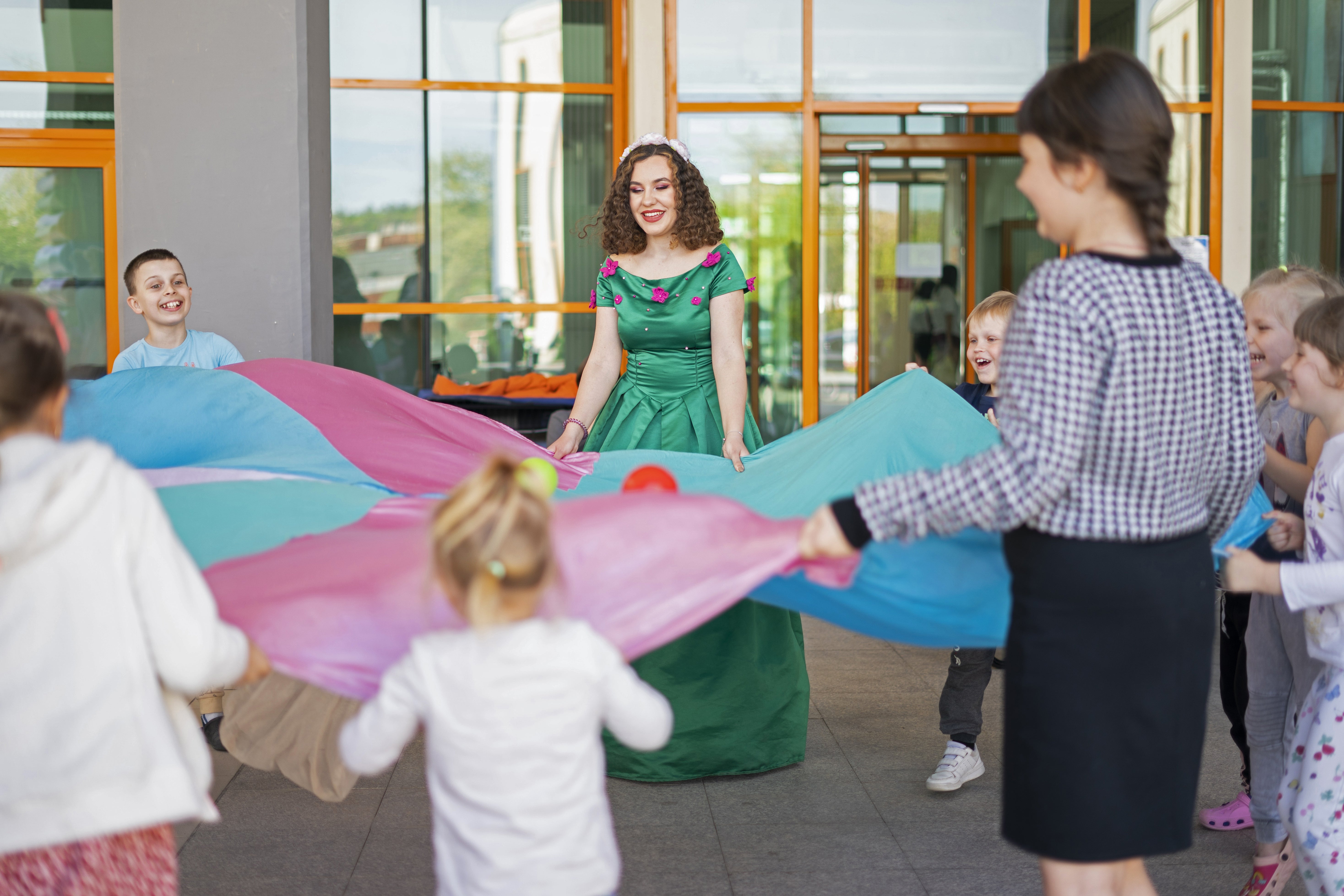Office block converted into refugee centre helps 900 Ukrainians in seven weeks
The centre in Romania was originally a temporary space for refugees, but now is housing some women and children indefinitely.

Your support helps us to tell the story
From reproductive rights to climate change to Big Tech, The Independent is on the ground when the story is developing. Whether it's investigating the financials of Elon Musk's pro-Trump PAC or producing our latest documentary, 'The A Word', which shines a light on the American women fighting for reproductive rights, we know how important it is to parse out the facts from the messaging.
At such a critical moment in US history, we need reporters on the ground. Your donation allows us to keep sending journalists to speak to both sides of the story.
The Independent is trusted by Americans across the entire political spectrum. And unlike many other quality news outlets, we choose not to lock Americans out of our reporting and analysis with paywalls. We believe quality journalism should be available to everyone, paid for by those who can afford it.
Your support makes all the difference.An office block converted into a refugee centre has helped 900 women and children who have fled Ukraine to Romania over the past seven weeks.
The centre, in Iasi, a city in north-east Romania and 200 miles north of the capital Bucharest, was opened on March 26.
Currently, it is occupied by 166 women and children, providing them with clothing, medical supplies, medical attention and three meals a day.
The 270-capacity venue also has a co-working space, a food hall, cinema room, playroom and room for pets to be kept in cages.
The block, which is owned by the local authority and run by the Romanian non-governmental organisations FONSS (Federatia Organizatiilor Neguvernamentale pentru Servicii Sociale), Parentis, Asociatia Afterhills and Asociatia Grupul Zambetul Nostru, is receiving support from 10 charities and has on-site security.
One charity supporting the centre is humanitarian aid charity World Vision.
World Vision is one of the Disasters Emergency Committee’s (DEC) member charities which is working directly or through local partners in Ukraine and in neighbouring countries to help the humanitarian crisis.
Funding donated to DEC’s Ukraine Humanitarian Appeal is given to its member charities working in Ukraine and neighbouring countries, which are providing support and assistance to refugees. More than £300 million has been raised so far.
In its initial stages, the centre in Iasi focused on being a temporary space to house those who have fled and provide them with emergency supplies.
However, since some of the refugees have decided to stay there until the war is over – normally they stay for two weeks and then leave – the centre is now focusing on helping the families integrate into Romanian society better and giving psychological support.
One refugee, 18-year-old Katya (who is using a pseudonym and did not give a last name), has decided to stay with her family at the centre until the war is over due to the support that is being offered specifically for children.
She is 39 weeks pregnant with her first child. Her 20-year-old boyfriend is back in Ukraine providing food to soldiers fighting on the frontline.
Speaking through a translator, Katya told the PA news agency: “Comparing here (the centre) to what I would have got if I had stayed in Ukraine, I’m so happy to be here. I am especially happy because we have doctors and nurses here and they can give me advice and help.”
Katya, who previously worked in Ukraine as a manicurist, travelled to Romania from Odesa with her mother, 43, sister, 12, and auntie, 47, plus the family’s cat Marchisa and dog Lada, on March 9.
“When we left it was really unplanned,” she said. “My family didn’t want to leave so I had to convince them to go. We had no idea where we were heading.
“We were so worried about leaving the country as we had no money. My sister also has no documents so we thought they would send us back to Ukraine.
“Since being here, I’ve seen the bombings of the maternity hospitals. I’m so happy I am here and not in the same position as women giving birth in shelters.”
Since March, World Vision has been funding a range of support – such as food, sanitation and mental health therapy – to refugees at the centre.
From next week, it will establish five containers, called “Happy Bubbles”, focusing on education and psychological support for children.
Alberto Roca, the operations co-ordinator for north-east Romania at World Vision, said: “We’re also going to try and give them a non-formal education because a lot of them may stay in Romania, maybe even after the conflict is over, so we want to try and make their lives as normal as possible.
“We started off our funding focusing on their basic needs, whereas now we’re going to be focusing more on education and their wellbeing.”
Mihaela Olteanu, a co-ordinator at the centre who works for FONSS, said: “Even though we are different nationalities, we are so thankful that when it came to this situation, everyone reacted in a positive way. That means there is still hope in the world and humanity is not just a concept. There is solidarity in the world.”
To donate towards DEC’s appeal, visit: www.dec.org.uk.